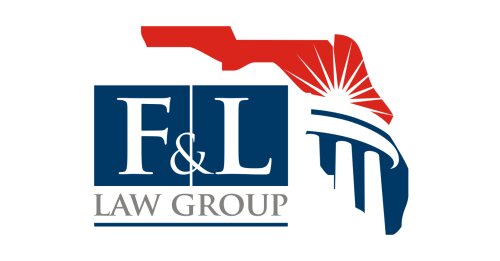Best Debt & Collection Lawyers in Florida
Share your needs with us, get contacted by law firms.
Free. Takes 2 min.
Or refine your search by selecting a city:
List of the best lawyers in Florida, United States
About Debt & Collection Law in Florida, United States
Debt & Collection law in Florida is a legal area that covers the rights and responsibilities of creditors, debtors, and collection agencies regarding the recovery of outstanding debts. These laws aim to balance the ability of creditors to collect what is owed to them while also protecting consumers from unfair, deceptive, or abusive collection practices. Whether you are a consumer facing debt collection or a business seeking to recover unpaid debts, understanding the legal framework in Florida is crucial to protecting your interests and complying with applicable laws.
Why You May Need a Lawyer
There are several situations where consulting a lawyer who specializes in debt & collection law may be necessary. You may need legal assistance if you:
- Are being harassed or threatened by debt collectors
- Receive a lawsuit or court summons from a creditor or collection agency
- Dispute the validity or amount of a debt you are being asked to pay
- Need advice about negotiating or settling a debt
- Are facing wage garnishment or bank account levies
- Own a business seeking to collect from customers who refuse to pay
- Believe a debt collector has violated your legal rights
- Are considering bankruptcy or want to know your options for dealing with overwhelming debt
A qualified attorney can help you understand your legal position, represent you in court, negotiate with creditors, and ensure your rights are respected throughout the process.
Local Laws Overview
Debt and collection practices in Florida are governed by a combination of federal and state laws. The most important legal frameworks include:
- Florida Consumer Collection Practices Act (FCCPA): This state law complements the federal Fair Debt Collection Practices Act and provides additional protections for Florida residents. It prohibits a wide variety of abusive, harassing, and misleading collection tactics by both creditors and third-party debt collectors.
- Statute of Limitations on Debt: In Florida, the time limits for creditors to sue for unpaid debts generally range from 4 to 5 years, depending on the type of debt (such as written contracts, open accounts, or promissory notes).
- Wage Garnishment Laws: Florida has specific rules about how much of your wages can be garnished to pay a judgment, and in some cases, individuals who qualify as “head of family” may claim exemptions.
- Repossession and Foreclosure: State laws set procedures for repossession of property and foreclosure on homes in the event of default.
- Exemptions and Protections: Florida law provides exemptions for certain property and income, protecting them from creditors under specific conditions.
Understanding these laws is critical whether you are collecting a debt or being pursued for payment.
Frequently Asked Questions
What can I do if a debt collector is harassing me in Florida?
You can send a written request for them to stop contacting you and report the conduct to the Florida Attorney General’s Office or the Federal Trade Commission. You may also have grounds to file a lawsuit under the FCCPA or FDCPA.
How long can a creditor pursue a debt in Florida?
The statute of limitations generally ranges from 4 to 5 years for most types of consumer debt. After this period, a creditor can no longer sue you to collect, although they may continue to attempt collection unless you ask them to stop.
Can my wages be garnished for debt in Florida?
Yes, but there are limitations and exemptions, especially if you qualify as a head of family. In most cases, creditors must first obtain a court judgment before garnishing wages.
What are my rights under the Florida Consumer Collection Practices Act?
You are protected from abusive, deceptive, and unfair collection practices. This includes threats, repeated phone calls, disclosing your debt to others, and more.
How can I dispute a debt with a collector?
You should send a written dispute to the debt collector within 30 days of their initial contact. The collector must then provide verification of the debt before continuing collection efforts.
If I pay part of a debt that is past the statute of limitations, what happens?
Making a payment or acknowledging the debt in writing can restart the statute of limitations, allowing the creditor to sue for the remaining amount.
Can my bank account be frozen over unpaid debt?
If a creditor wins a court judgment against you, they may be able to garnish your bank account, subject to exemptions for certain types of funds like Social Security and disability benefits.
What is the process for a creditor to win a judgment in Florida?
A creditor must file a lawsuit and win a court judgment by proving the debt is owed. If you are served with a lawsuit, it is important to respond promptly to avoid a default judgment.
How do I protect my assets from creditors?
Florida law provides some exemptions, such as homestead protection for your primary residence and limits on wage garnishment. An attorney can advise you on how best to protect your assets given your circumstances.
What should I do if I am sued for a debt?
Respond to the lawsuit within the timeline provided, seek legal advice, and do not ignore the complaint. Failing to respond could result in a default judgment against you.
Additional Resources
If you are dealing with a debt or collection issue in Florida, the following resources can be helpful:
- Florida Office of the Attorney General - Consumer Protection Division
- Florida Bar Lawyer Referral Service
- Florida Department of Financial Services
- Federal Trade Commission (FTC) - Fair Debt Collection Practices
- National Consumer Law Center
- Legal Aid Society in your local county
These organizations offer educational materials, consumer complaints, legal support, and in some cases, free or low-cost representation.
Next Steps
If you need legal assistance with a debt or collection matter in Florida:
- Gather any relevant documents, including collection letters, court notices, and your payment records
- Write down the details of your situation and any communications with collectors
- Research local attorneys who specialize in debt and collection law
- Contact a qualified lawyer or legal aid service to discuss your options before taking action or making payments
- Consider filing a complaint with the Florida Attorney General or other regulatory bodies if you believe your rights have been violated
Understanding your rights and obligations under Florida law can help you make informed decisions and protect your interests. Do not hesitate to seek professional guidance if you feel overwhelmed or uncertain about your situation.
Lawzana helps you find the best lawyers and law firms in Florida through a curated and pre-screened list of qualified legal professionals. Our platform offers rankings and detailed profiles of attorneys and law firms, allowing you to compare based on practice areas, including Debt & Collection, experience, and client feedback.
Each profile includes a description of the firm's areas of practice, client reviews, team members and partners, year of establishment, spoken languages, office locations, contact information, social media presence, and any published articles or resources. Most firms on our platform speak English and are experienced in both local and international legal matters.
Get a quote from top-rated law firms in Florida, United States — quickly, securely, and without unnecessary hassle.
Disclaimer:
The information provided on this page is for general informational purposes only and does not constitute legal advice. While we strive to ensure the accuracy and relevance of the content, legal information may change over time, and interpretations of the law can vary. You should always consult with a qualified legal professional for advice specific to your situation.
We disclaim all liability for actions taken or not taken based on the content of this page. If you believe any information is incorrect or outdated, please contact us, and we will review and update it where appropriate.
Browse debt & collection law firms by city in Florida
Refine your search by selecting a city.











